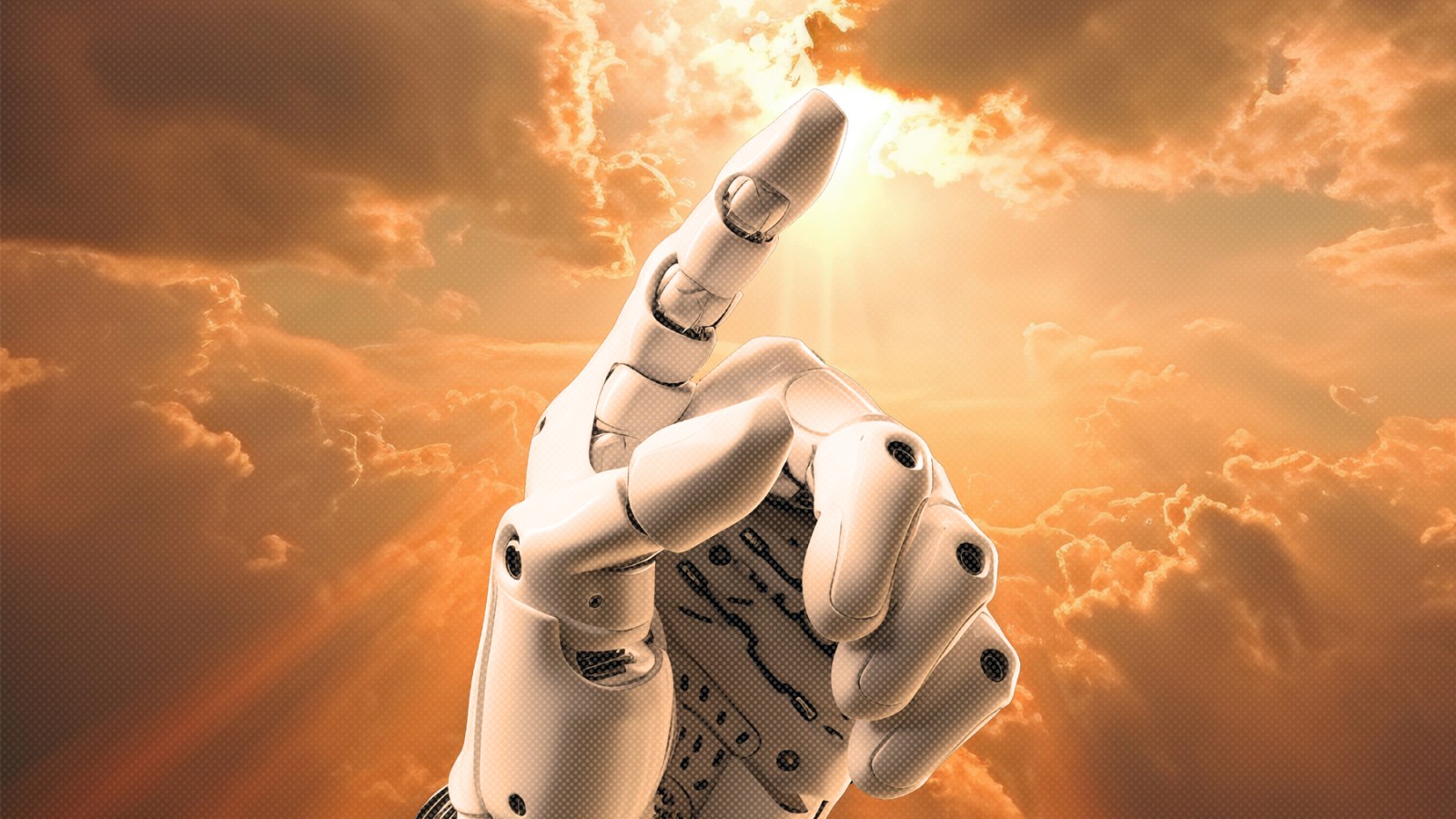Anywhere speculative investment is involved there are cult like patterns. If your investors don’t believe that your product is going to revolutionize its field you’re not going to get the kind of funding these startups want.
. . . NVIDIA in-house counsel Nikki Pope: In a panel on “governing” AI risk, she cited internal research that showed consumers trusted brands less when they used AI.
This gels with research published last December that found only around 25 percent of customers trust decisions made by AI over those made by people. One might think an executive with access to this data might not want to admit to using a product that would make people trust them less.
Indeed.
It’s one of the terrible hype trains again… However, I wonder what makes him think that humans are something clearly more than a model that gathers data through the senses and reacts to external stimuli based on the current model. I think that’s special pleading.
I’ve seen a lot of reaction to AI that smacks of some kind of species-level narcissism, IMO. Lots of people have grown up being told how special humans were and how there were certain classes of things that were “uniquely human” that no machine could ever do, and now they’re being confronted with the notion that that’s just not the case. The psychological impact of AI could be just as distressing as the economic impact, it’s going to be some interesting times ahead.
I’m not sure how you get this from the article, though. Evans has no doubt it’s possible; like anyone with any knowledge of the state of AI he also knows that’s really fucking far away and just science fiction today. On the other hand, if you’re going to reduce things to the absurd level comment chain OP did, I suppose the future is now because judicial AI is just as racist as cops.
"What we call AI lacks agency, the ability to make dynamic decisions of its own accord, choices that are “not purely reactive, not entirely determined by environmental conditions.” "
That’s from the article and I referred to that.
So are you suggesting that humans “[lack] agency [and] the ability to make dynamic decisions?” Your point is that humans are just AI and, if we’re going from this quote, we can’t have agency if we are the same.
I’m not saying that humans are just AI, I’m just saying that there’s no fundamental difference in the sense that we also respond to stimuli… we don’t have free will.
That’s fair. With that line of logic, the author had to say what he said so there’s no value behind criticizing him. Granted you had to criticize him because you have no free will either. The conversation is completely meaningless because all of this is just preprogrammed action.
Depends on how you define meaning. I find meaning in experiencing the life. It may be predetermined or have random elements in it but the experience is unique to me.
Anyway, given all we know about us and the universe I haven’t heard a coherent proposal of how free will could work. So, until there’s good evidence to convince me otherwise … I can’t help but believe it doesn’t exist.
I love the tech but have much the same feelings. AI maybe improve the world eventually, but I predict a painful future in the intervening time. I hope investors turn sooner than later to slow this train but we’ll see. Lot of big players betting the farm on AI, to the point where they’ll do everything to see it through.
Every advance in technology (see all the Luddites in history) have been accompanied with a wake of pain.
Not every new piece of technology is actually an advancement. You have an extreme case of selection bias in your assessment.
Name 5 that did not have sweeping adverse consequences, with accompanying sources. I will even accept Wikipedia pages if they have attributions. Make sure they are major ones that really shaped the course of human existence moving forward from their introduction.
What about toilet technology?
This is probably more of a failing of infrastructure and planning than technology. But I think if we only handle advances in technology as a thing on paper and not a thing in society used by people, then we miss an important, but simple point. Technologies are used by people and they is the only way they can change society.
Any case, toilets ruined London for a couple of decades:
As the population of Britain increased during the 19th century, the number of toilets did not match this expansion. In overcrowded cities, such as London and Manchester, up to 100 people might share a single toilet. Sewage, therefore, spilled into the streets and the rivers.
This found its way back into the drinking water supply (which was brown when it came out of the pipes) and was further polluted by chemicals, horse manure and dead animals; as a result, tens of thousands died of water-borne disease, especially during the cholera outbreaks of the 1830s and 1850s.
In 1848, the government decreed that every new house should have a water-closet (WC) or ash-pit privy. “Night soil men” were engaged to empty the ash pits. However, after a particularly hot summer in 1858, when rotting sewage resulted in “the great stink (pictured right in a cartoon of the day)”, the government commissioned the building of a system of sewers in London; construction was completed in 1865. At last, deaths from cholera, typhoid and other waterborne diseases dropped spectacularly.

The Great Stink only arises because of the development of a sewer system that piped all the sewage to the Thames. And it didn’t stop with the stink:
Despite Bazalgette’s ingenuity, the system still dumped tons of raw sewage into the Thames - sometimes with unfortunate results. The death toll from the sinking of the pleasure boat Princess Alice in 1878 would certainly have been smaller if it had sunk elsewhere on the Thames. As it was, it went down close to one of the main sewage outfalls. Approximately 640 passengers died, many poisoned rather than drowned. Horror at the deaths was instrumental in the building of a series of riverside sewage treatment plants. [Science Museum]
So that’s just one example of toilet technology causing a mess. I bet there are others such as the need for an ‘S’ pipe. But ultimately, technological improvements require a little foresight, insight, feedback and a lot of social power.
Haha wow I had no idea, just was being a smart ass and got a fun fact out of it. Thanks for sharing!




